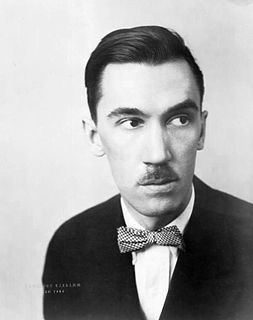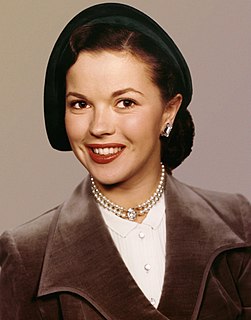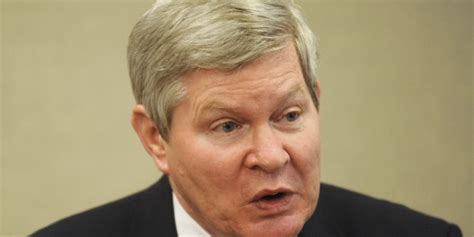A Quote by Johnny Carson
In 1932, lame duck president Herbert Hoover was so desperate to remain in the White House that he dressed up as Eleanor Roosevelt. When FDR discovered the hoax in 1936, the two men decided to stay together for the sake of the children.
Related Quotes
Well, in Washington, this is a very hard time for Eleanor and Franklin. This is when Lucy Mercer first appears. And Lucy Mercer is Eleanor Roosevelt's own secretary. Very beautiful young woman, not unlike Eleanor Roosevelt: tall, blonde, thick haired. And FDR is having an affair with her, which Eleanor Roosevelt finds out when FDR returns from Europe in 1918 with the famous flu of 1918.
She really is a completely different First Lady. Eleanor Roosevelt was not going to suffer and withdraw in the White House. And I think he's a very different President. He does not want his wife to suffer and withdraw in the White House. And they really are partners. They're partners in a big house where there are two separate courts, and they both know they have two separate courts. But these are courts that are allied in purpose, united in vision.
Eleanor Roosevelt fights for an anti-lynch law with the NAACP, with Walter White and Mary McLeod Bethune. And she begs FDR to say one word, say one word to prevent a filibuster or to end a filibuster. From '34 to '35 to '36 to '37 to '38, it comes up again and again, and FDR doesn't say one word. And the correspondence between them that we have, I mean, she says, "I cannot believe you're not going to say one word." And she writes to Walter White, "I've asked FDR to say one word. Perhaps he will." But he doesn't. And these become very bitter disagreements.
One of the things for me, as a biographer, that is so significant is for Eleanor Roosevelt - the child who never had a home of her own, who lives in her grandmother's home and then goes to school and then gets married and lives in her mother-in-law's homes, and then in public housing (like the White House and the State House) - housing becomes for Eleanor Roosevelt the most important issue.
Eleanor Roosevelt's very helpful to a lot of children who cannot speak French, who do not write well. And Marie Souvestre is fierce. She tears up students' papers that are not, you know, perfect. And Eleanor Roosevelt goes around, again, being incredibly helpful to children in need, children in trouble. And her best friends are the naughtiest girls who are in trouble. And she is a leader. And she is encouraged to be a leader. And everybody falls in love with her. She's a star.
By 1938, Eleanor Roosevelt was so angry at FDR's policies, she writes a book called This Troubled World. And it is actually a point-by-point rebuttal of her husband's foreign policy. We need collective security. We need a World Court. We need something like the League of Nations. We need to work together to fight fascism. We need embargoes against aggressor nations, and we need to name aggressor nations. All of which is a direct contradiction of FDR's policies.
On international relations, Eleanor Roosevelt really takes a great shocking leadership position on the World Court. In fact, it amuses me. The very first entry in her FBI file begins in 1924, when Eleanor Roosevelt supports American's entrance into the World Court. And the World Court comes up again and again - '33, '35. In 1935, Eleanor Roosevelt goes on the air; she writes columns; she broadcast three, four times to say the US must join the World Court.
And in the same way, FDR's not much of a father. Although the children in all their memoirs really talk about what a fun-loving guy Dad was, and how brooding and unhappy Mom was. The children sort of blame it all on the mother. Well, this is kind of standard and typical, and aggrieved Eleanor Roosevelt that she was not a happier mother. She wanted to be a happier mother. And I must say, she was a happier grandmother.



























